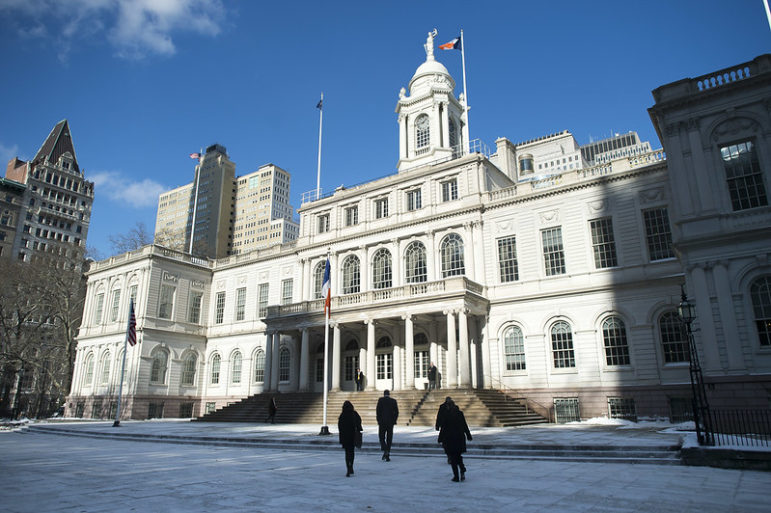On Sunday’s episode of City Watch on WBAI, award-winning columnist Ross Barkan and progressive political strategist Trip Yang breakdown the general election results and talk about what’s ahead next year.

Rob Bennett/Mayor’s Office
The next mayor faces both challenges and opportunities.New York City Republicans turned back the clock last week—even before the end of daylight saving time.
GOP voters headed to the polls in large numbers to defend three City Council seats, flip at least one more Democratic seat red and defeat three ballot proposals intended to increase voter access and reform the redistricting process. Sure, the Republican candidate for mayor, Curtis Sliwa, got walloped in this heavily Democratic town, but he performed surprisingly well and even beat opponent Eric Adams in several Assembly Districts held by Democrats—including a Flushing AD represented by leftwing lawmaker Ron Kim.
Make no mistake, Democrats still run New York City, but the Big Apple’s atrophied Republican Party showed it could still flex some muscle and get out the vote.
So what happened— why did conservatives in New York City and across the country perform so well on Election Day? And what can the Democratic Party do about it? Sunday’s episode of City Watch on WBAI 99.5 FM featured two guests and a variety of callers from across the region weighing in on those very questions.
Ross Barkan, an award-winning columnist for the Guardian and Jacobin and author of the Substack newsletter, Political Currents, shared his perspective on the results and what they mean for our city and area.
After Barkan, progressive political strategist Trip Yang addressed the popular narrative that leftists Democrats were to blame for the Election Day defeats. Yang discussed how the party can move ahead and appeal to more moderate voters without losing its focus on equity and justice.
And callers from Southeast Queens, Staten Island and even rural Sussex County, NJ called in to share their thoughts.
The Election Day analysis will continue in the months ahead, but one thing is for certain: We’re in for a wild year in New York politics.
“It’s a brave new world because you’re going to have a lot of ideological diversity in a way we haven’t had in a while, and we’re probably going to see some of the trends that have taken over national politics, in particular the polarization, trickle down to New York City,” Barkan said. “And you have a new mayor in Eric Adams who himself is deeply unpredictable and has a long history of holding a variety of different political positions and at times being incendiary.”
The City Council is set to feature socialists sitting alongside far-right Trump supporters—and that’s just the Queens delegation. A competitive race for governor is about to heat up.
And Adams will take office after making a pledge to a crowd of lawmakers, lobbyists, labor leaders and political strategists at a conference in Puerto Rico Saturday: “Trust me when I tell you, there’s never going to be another mayor like me.”








